#robert christgau
Text
Robert Christgau whenever he hears a good album by a female artist:

#star trek#star trek voyager#tuvix#robert christgau#this is probably an insanely specific meme but i can't be the only person who gets weirded out by this right#his review of rid of me is up there with that one blade ii “review”#bro really said “an array or succession of cocks”#what timeline is this
2 notes
·
View notes
Text
In a fever of indirectness I once referred to Steely Dan as the Grateful Dead of bad vibes. The perfect tag, really--not only was it impossible to know exactly what it meant, it was even impossible to tell whether it was complimentary. Because Steely Dan resists hype in favor of less comfortable versions of the truth, it deserves such ambiguity. What the band is up to is so elusive that a year later, having absorbed (or is it penetrated?) their disenchanted boogie over hundreds of hours of listening pleasure, I still can't think of a better hook. And however much Steely Dan deserves ambiguity, it also deserves a hook.
—Robert Christgau, What Kind of a Best Rock and Roll Band in the World Is This?, Village Voice, April 21, 1975
4 notes
·
View notes
Text
253: Gilberto Gil // Gilberto Gil [1968]
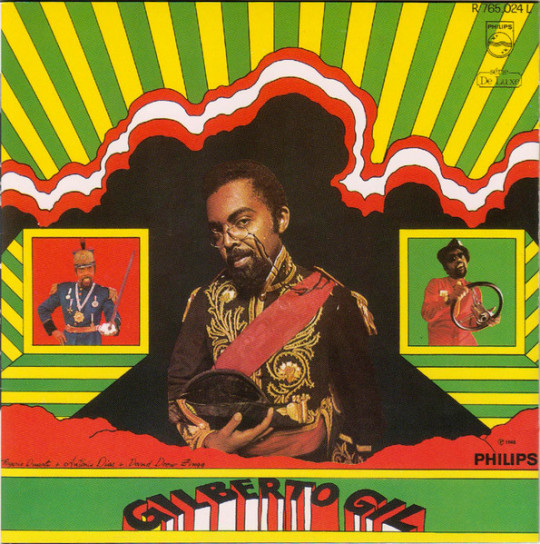
Gilberto Gil
Gilberto Gil
1968, Philips
Robert Christgau and I find ourselves in the same boat when it comes to understanding tropicália. Here’s the first line of the Dean’s capsule review of Gilberto Gil’s Soy Loco Por Ti America (1988): “Milton Nascimento and Caetano Veloso are aesthetes like, to be kind, Joni Mitchell; Gil is a pop adept like Stevie Wonder, which I'd probably think was kind to Stevie if I understood Gil's lyrics.” Like Christgau, I’m stuck on the wrong side of Portuguese but gravitate more toward the exuberant weirdness of a Gil or a Tom Zé than I ever have to the comparatively restrained Veloso (though I like some of Nascimento a lot). Language barrier or no, Gilberto Gil’s first self-titled record from 1968 (sometimes called Frevo Rasgado after its first track) is among the most colourful LPs of the first psychedelic era, and on pure sonics I’d make the case for it as the equal of anything that emerged from the Anglo-American axis during the period.
As with other tropicália touchstones, while Gil borrows many of the aesthetics of psych pop (its vivid, lysergic pomp and tasty electric guitar textures principally), his compositions are still founded in samba and bossa jazz, which means these songs are much nimbler and more rhythmically complex than those of his counterparts in the Northern Hemisphere. For every track that plunges directly into acid rock (a la the swaggering blues of “Coragem pra suportar”), there are three that ecstatically cartwheel from zanily-orchestrated hook to hook; on wildly gesticulating songs like “Marginalia II” and “Frevo Rasgado” I can see what Christgau’s getting at when he says Gil writes showtunes. Gil’s lyrics survive translation better than most, and they’re a lot bleaker than you’d expect, chafing under the military dictatorship that would imprison and then exile him and his friend Veloso in 1969. Yet there’s also something about his vocalizations that you just kinda get. Perhaps inspired by his youthful collaborators, the irrepressible Dadaist weirdos Os Mutantes, Gil gibbers, scats, and raves his way through the LP: at the record’s hottest, like ���Pega a voga, cabeludo,” it feels like a maniac conga line winding its way through your home.
youtube
Prices on recent reissues of Gil, Veloso, Gal Costa, etc. amount to highway robbery, though I was able to get my copy of Gilberto Gil for quite cheap as it’s an unauthorized (but quite good) Russian pressing. However you get your hands on it, the album earns its reputation as a classic of Brazilian and world music that I think every pop music lover should hear.
253/365
#gilberto gil#tropicália#tropicalia#bossa nova#samba#os mutantes#psychedelic pop#'60s music#brazilian music#music review#vinyl record#robert christgau
2 notes
·
View notes
Text

Robert Christgau on The Feelies, Village Voice, December 18, 1978
“Fier made his debut with the band at Hurrah on December 12. Maybe Mayor Koch (or Governor Byrne) will declare that date Feelie day”
15 notes
·
View notes
Text
strangely prophetic (christgau)
and very funny, though perhaps not intentionally so
"Preceding David Bowie's New York debut at Carnegie Hall last night was a persistent no-talent named Ruth Copeland, who has been trying to prove that beauty is only skin deep for several years now."
0 notes
Text
I think I've decided Tom Wolfe is the best of the New Journalism, from what I've read of it. I also didn't know he coined the term.
"The term was codified with its current meaning by Tom Wolfe in a 1973 collection of journalism articles he published as The New Journalism, which included works by himself, Truman Capote, Hunter S. Thompson, Norman Mailer, Joan Didion, Terry Southern, Robert Christgau, Gay Talese and others."
I'm not nearly gun-totin-heterosexual-conservative enough for Hunter S. Thompson's bullshit
Not classicist-conservative enough for Joan Didion's
Truman Capote -- hey, great that he's a twinkletoes but it's a bit reserved and closeted, right
Norman Mailer -- yeah like letting your conservative man who's actually a grandma tell the story
I haven't read Terry Southern, my understanding is he's for lovers of 'southern grit' and I don't know particularly who would be.
Also haven't read Christgau or Gay Talese. I think both those two have a ton of potential to be my favourite... Christgau wrote music journalism, including a book on the best album of the 70s -- my fav decade -- and Talese wrote a book on a voyeur's hotel.
#tom wolfe#joan didion#truman capote#norman mailer#terry southern#robert christgau#gay talese#the 70s#the new journalism#new journalism
0 notes
Text
youtube
Veía "Emotion" de DFX2 en las tiendas del Foro hace muchos años, era uno de esos discos habituales de las cubetas de saldos, pero nunca lo compré ni lo escuché. Parecía uno de esos muchos grupos de new wave americana de segunda o tercera (The Pop, Vög, The A´s, The Scooters, Propaganda, Robin Lane & The Chartbusters, The Proof... y cientos, infinidad de ellos) de esos que no molestan, pero que tampoco marcan y muchas veces es mejor ahorrarse.
El otro día estaba con exyugoslavo en la parte baja del volcán y volvieron a surgir DFX2 y muy baratos. El EP de cinco temas está bien, es como la suma Rolling Stones + Mink Deville en un rock de nueva ola con total aspiración mainstream.
DFX2 intentaron el éxito (el crítico Robert Christgau valoró el disco como A o A-, es decir, extremadamente bien), salieron mucho en la primera fase MTV y tuvieron dos pequeños éxitos, pero al final - como tantos y tantos grupos mejores o peores- no pasó nada con ellos.
0 notes
Link
Because although the Dolls are rightly regarded as the spawning ground of punk, they had their own not-minimalist-enough-for-punk sound, one that melded Nolan's fierce, sizable racket and Thunders’s crazed, half-articulated squall into a species of “hard rock” that embraced not just noise but error. So even when those two were dead and their unduplicable individual sounds lost forever, that sound could be approximated by the kind of backup pros who play the Cafe Carlyle, generating a more kempt music whose humanity remains sui generis—as complete and convincing an embodiment of David Johansen’s genius, because that’s what it is and nothing less, that we can expect to hear this late in the game.
As Personality Crisis: One Night Only makes amply clear, the Dolls weren’t the only way that genius manifested itself. I always had my doubts about the Buster Poindexter persona, but in this film I recognized him as one more facet of an artistic vision that's more humanistic than it is anything else—unless you count Buddhist, but we’ll get to that. In this film a gratifyingly hale 70-year-old whose voice seems barely diminished conceives Buster as an entertainer so congenial his humanism is all-embracing, thereby transforming anarchic New York Dolls songs into the love songs to humanity they always were deep down.
0 notes
Video
youtube
Lecture 16: PUNK!: Leftist punkers The Minutemen perform “I Feel Like a Gringo” in 1985, not long before lead singer, songwriter and guitarist D. Boon (Dennes Dale Boon) was killed in a traffic accident at age 27. Boon is widely believed to be one of the best (if not the best) guitarists in hardcore punk, chosen by Rolling Stone magazine to be in its top 100 greatest guitarists. Famed music journalist Robert Christgau described D. Boon’s early death as “a rock death that has for wasted potential Lennon and Hendrix for company.”
#The Minutemen#Punk#Hardcore Punk#D. Boon (Dennes Dale Boon)#virtuoso guitarists#I Feel Like a Gringo#1985#Robert Christgau
0 notes
Text
♫ Fool On The Hill ♫ (Redux)
♫ Fool On The Hill ♫ (Redux)
Last night I was, for reasons that shall remain undisclosed, literally kicking myself and calling myself a ‘fool’. And as I did so, perhaps it was the kicking and head smacking, a number of songs with ‘Fool’ in the title came to mind. Me, myself, and I pondered a few, such as Elvis Presley’s “Fools Rush In”, The Doobie Brothers “What a Fool Believes”, and Sammy Davis Jr.’s “What Kind of Fool Am…

View On WordPress
#Alistair Taylor#Brasil 66#music critics#music trivia#Paul McCartney#Robert Christgau#Sergio Mendes#the Beatles#Tim Riley
1 note
·
View note
Photo

The Story: Living Without the Beatles
The Writer: Robert Christgau
(photo illustration: thaliacapos.com)
#beatles#beatles breakup#paul mccartney#john lennon#george harrison#ringo starr#robert christgau#essays#music#rock#thalia capos
1 note
·
View note
Text
Creem Magazine is back in print and online after 33 years
Creem Magazine is back in print and online after 33 years
The iconic, unfiltered and wickedly funny CREEM is back. Having ushered in a new era of raucous, participatory journalism when the magazine originally launched in 1969, its legendary voice is leading the movement once again. CREEM is launching a free digital archive with every single issue from its original 1969-1989 run available online for the first time ever, as well as a new editorial website…
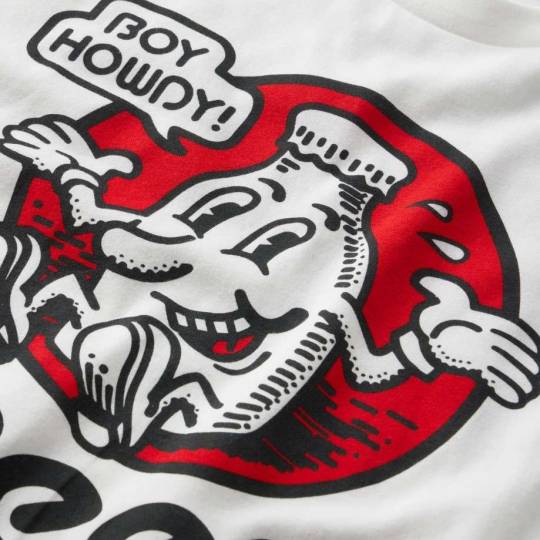
View On WordPress
#Cameron Crowe#Creem#Dave Marsh#Greil Marcus#Jaan Uhelszki#Lester Bangs#Lisa Robinson#magazine#Patti Smith#Robert Christgau#rock mag#Susan Whitall
0 notes
Text


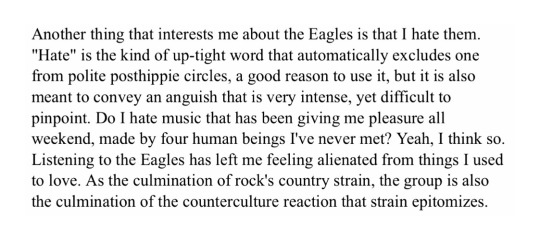
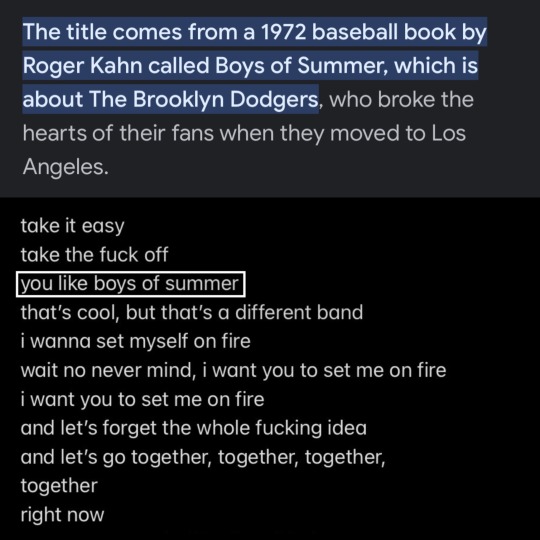


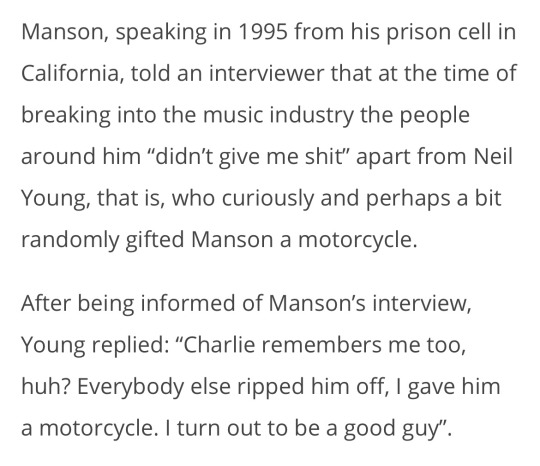


Threads between MCR, Neil Young, Laurel Canyon, The Eagles, and the Manson Family
...... Disillusionment with Hollywood ......
MCR Houston (photos by Keylee Paz) | Revolution Blues by Neil Young | Trying to Understand the Eagles by Robert Christgau | Kris Lori (WWWY)
#this kind of disintegrated at the end but know i understand what im trying to say if i cant convey it#neil + gerard#mcr#neil young
179 notes
·
View notes
Text
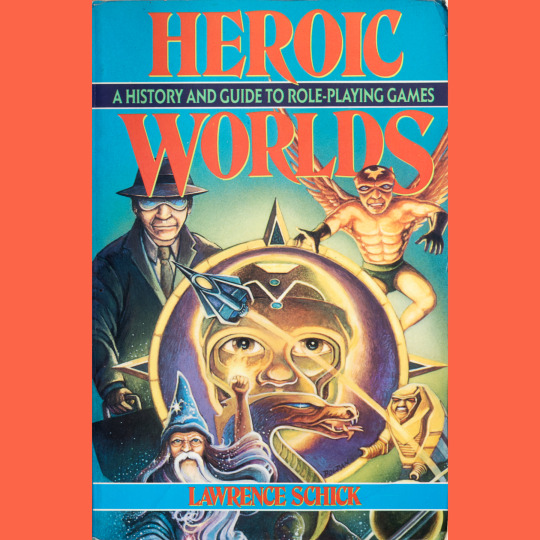
This is Heroic Worlds (1991), by Lawrence Schick (of White Plume Mountain fame).
There are a bunch of books from the ‘80s and ‘90s that attempt to catalog and review RPGs and they kind of boggle my mind (the same is true for the similar genre of print paperback tip guides for videogame). Even having lived in the pre-internet era, I don’t understand the rationale for these books from a publishing perspective. Which is not to say I don’t adore Heroic Worlds. I do! It just seems…improbable.
The book essentially amounts to an index of every RPG product produced from 1974 to 1990. It feels a tiny bit like an Overstreet Comic Book Price Guide (another publication I’ve always been baffled by), except without the prices (though there is a small section on collecting — the advice still rings true today, primarily: be patient!). The listings are interrupted periodically with short essays by a rogues gallery of RPG designers: Gary Gygax, Dave Arneson, Greg Stafford, Steve Jackson, Jennell Jaquays, Michael Stackpole, Ken St. Andre, Tom Moldvay, Ken Rolston, Sandy Petersen, Erick Wujcik, B. Dennis Sustare, N. Robin Crossby and Greg Gordon. That is a pretty all-star cast of characters talking about tabletop game design!
The main attraction for me, though, is Schick’s commentary. Nearly all of the listings are accompanied by very brief appraisals; they give Robert Christgau’s album reviews a run for their terseness. Schick has a dry wit that creeps into the capsule reviews that soon becomes addictive. And there is just something wonderful about having a period of time captured so exhaustively in a single volume. I don’t think EVERYTHING ever published through 1990 is in the index, but Schick sure makes the book feel like it does. I refer to it constantly for my Instagram posts, it was a constant companion when writing my own book and honestly, it deserves a lot of blame for the size and scope of my collection. Damn you, Schick!
(Repost from April 30, 2020; revised)
58 notes
·
View notes
Text
Review #263: Tracy Chapman, Tracy Chapman
You don’t get artists like Tracy Chapman come along too often, and it’s infuriating when they do, because you see the same old shit play out. People are threatened by their mere presence and the idea that they can make something so incredible, but especially that it might give marginalized people a voice. This record came out the year I was born, so it’s approaching its 36th birthday. It’s both unsurprising and also a little devastating at how relevant it remains in 2024. I’ll start by saying: I love it, her, I always have, and I have so many memories attached to this record. Some so sad and some really sweet, all really tender.
But I have something to say about both music critics and general white fragility when it comes to Tracy. Here’s a 1988 review from renowned critic Robert Christgau, self proclaimed “Dean of American Rock Critics” (are American rock critics some kind of authority too? Why’s that? Interesting.):
"Fast Car" is so far-seeing, "Mountains o' Things" so necessary, that it's doubly annoying when she puts her name on begged questions like "Why" and "Talkin' Bout a Revolution." Maybe I should be heartened and so forth that Intelligent Young People are once again pushing naive left-folkie truisms, but she's too good for such condescension--even sings like a natural. Get real, girl. B MINUS”
Where to begin? Firstly, that is the entire review. So you want to talk about condescension, Robert? You can start by referring to Tracy Chapman as a grown woman, which she is, and was, in 1988. And critic you may be, but you’ve never written a review that’s even half as good as Talkin’ Bout A Revolution, which is more relevant today than any of your writing. Why was about apartheid. Maybe you had the luxury of not giving a fuck. Assigning grades? B minus? Get real, boy.
Curious what grade you gave Paul Simon’s Graceland, an album recorded during apartheid, some in South Africa with an array of African musicians who he then toured with. This was both criticized and praised. The point is, it was very political, not in content so much, but in creation. So, when it’s done by an egotistical white man? Listen, I love Graceland but don’t think I won’t be looking into that with some serious side-eye. OH WHAT A FUCKING SURPRISE, PAUL SIMON’S 1986 GRACELAND RECEIVED AN A. Fuck all the way off, and then fuck off some more.
This album isn’t for you. Has it ever occurred to you that not every piece of music was made to be consumed by you? And to be declared worthy by you? Jesus fucking Christ, the audacity. She’s singing about poverty, the kind most people will never truly know. The traumatic kind. She’s singing about domestic violence, you know, the kind typically perpetrated by men against women and that too often takes their lives. She’s singing about a tense relationship with the police. She’s singing about escaping dire situations with a glimmer of hope that she might finally belong, that she might finally “be someone”… Only to find herself in seemingly just as dire ones. Do you relate, Robert? Let’s go back to 1988 and you just sit this one out. To be clear, it’s not entirely for me either! But when you have that awareness, you can hear something and still appreciate it. It’s not that hard.
Fast Car was still on the radio a good bit when I was growing up, and again, I think my Mom played this record from time to time. But my real connection to Tracy Chapman came to me in two different ways: VH1’s Pop Up Video, which I watched every single day before I went to school. Over and over, the same episodes. There was an episode that featured Fast Car, and I remember just being floored by the little facts that popped up. Her life had been so unbelievably difficult, with challenge after challenge — which is pretty damn clear in the song. The thing I always remember is that as a young girl, she had saved up her money to buy a guitar, and then her best friend stole it. As stupid as it sounds I think about that all the time. Anyway, this song is special, and everyone knows it, it’s massive, but it’s something different to everyone. Can anyone relate specifically to what she’s describing? Probably somebody, somewhere. Maybe lots of people. But I can tell you that I listened to this song curled up in my bed pretending to be asleep with tears streaming down my face. Wishing that some parts of it weren’t true for me, and wishing that some parts of it were. It’s both a gut punch and a cup of tea between my cold hands.
The second way was Baby Can I Hold You, which, and this kind of cracks me up, was covered by Irish boyband Boyzone in the 90s. Little baby me was pretty into Boyzone, but eventually learned that the original artist was Tracy Chapman. Obviously, her version is better. It hurts my feelings. Is it someone declaring their feelings? Or is it someone communicating the experience of an emotionally unavailable partner, and the words they long to hear? Either way, there’s an ache in it, and it’s beautiful.
Tracy Chapman has been having a major resurgence, because a white male country artist covered Fast Car and as a result an entire new generation of young people are being moved by it. While I kind of wish there wasn’t a cover like this at all, it’s been nice to see Luke Combs give Tracy Chapman the spotlight she deserves and make it her moment. They seem to have a sweet and thoughtful relationship, and he truly loved the record when it came out. He had it on cassette. It was really something to see Tracy on stage at the Grammys smiling, thriving, looking beautiful as ever and singing with that voice just shutting everybody the hell up. I also appreciate that he kept the genders the same in his cover. I’d love to know whether he chose that or whether she insisted upon it. Either way, it was the right call.
Chances are you’ve heard Fast Car, and maybe even Baby Can I Hold You. Don’t be a dweeb, this record is significant and I really believe you’re missing out if you go through your life without listening to it, but it’s your call. I’d like to personally thank Tracy Chapman and VH1’s Pop Up Video for their contributions to my life and the content of my brain. I love you both so very much.
8 notes
·
View notes